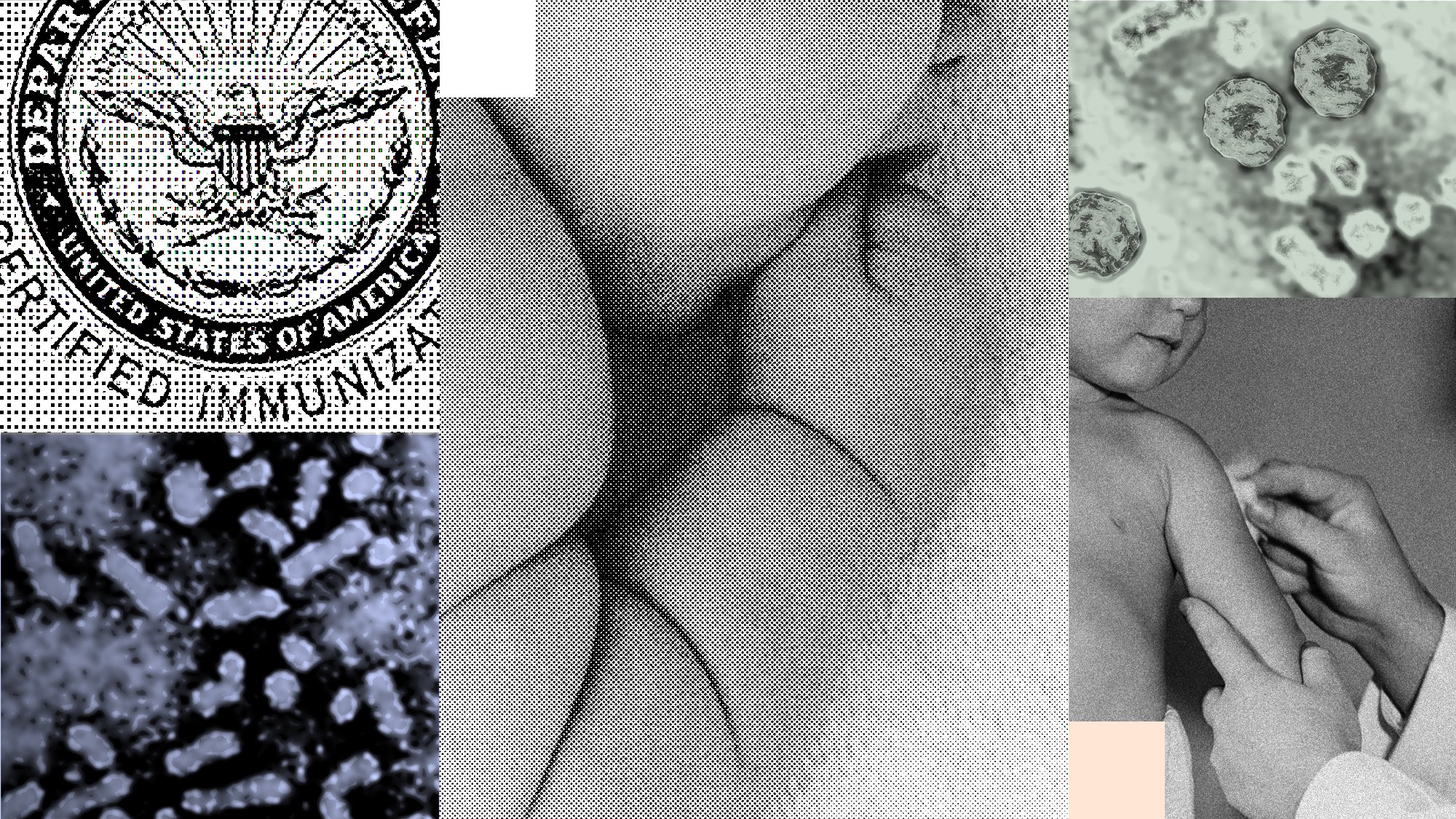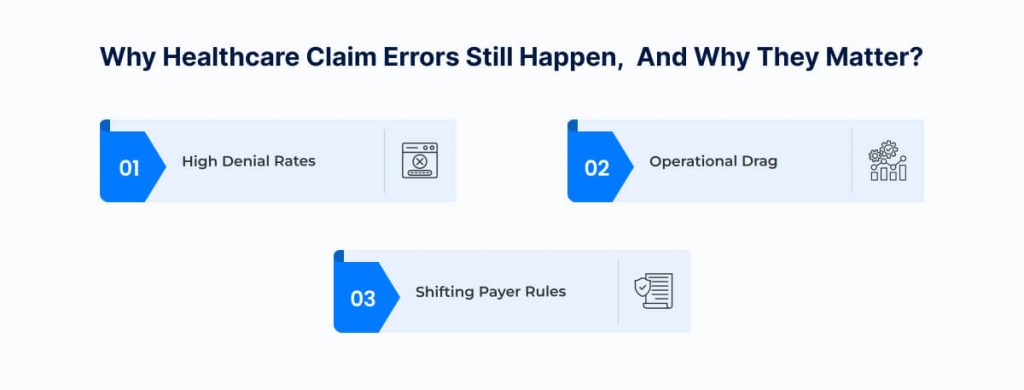Sign up for Trump’s Return, a newsletter featuring coverage of the second Trump presidency.
Donald Trump, always one to tout his knack for dealmaking, declared on Tuesday that he’d just struck one of his best deals ever. “This is one of the biggest medical announcements that this office has ever made,” Trump said in the Oval Office, flanked by his top health officials. They’d gathered to announce that the administration had cut a deal with the pharmaceutical giant Pfizer. Trump couldn’t help but smirk. “I’m surprised you’re agreeing to this,” he told Albert Bourla, the CEO of Pfizer.
Even drug-industry lobbyists are reportedly surprised by what Pfizer agreed to. The company has a history of outmaneuvering Trump’s attempts to lower drug costs, yet it pledged to cut the costs of its drugs in the United States to match the lower prices it charges other developed countries. Pfizer also agreed to participate in TrumpRx, a new website the administration announced on Tuesday that will allow Americans to buy certain drugs at steep discounts.
Since he entered politics a decade ago, Trump has been obsessed with his belief that pharmaceutical companies are ripping off Americans by jacking up the price of drugs they sell for less in other developed countries. In his first press conference as president-elect in 2017, Trump declared that drugmakers were “getting away with murder.” By the end of Trump’s first month in office, he had summoned pharmaceutical executives to the White House to needle them about the issue. “I think you people know very well, it’s very unfair to this country,” he told them. He spent much of his first term unveiling policy after policy meant to reduce what Americans pay for prescription drugs. Time and time again, Trump’s attempts failed—until now. By getting one of the world’s most powerful drug companies to finally agree to his demands, Trump has caught a white whale.
The president has reason to be angry about drug prices. In 2022, drugmakers charged Americans nearly three times as much for drugs, on average, than they charged residents of comparable countries, according to a government report. A sizable percentage of Americans struggle to pay for their prescriptions, sometimes leading to tragic results. But Tuesday’s victory was mainly a symbolic one, at least for the time being. It’s still unclear how much relief Pfizer’s move will end up bringing to patients at the pharmacy counter. Pfizer did agree to launch all new drugs at prices “at parity with other key developed markets.” But for its existing portfolio of drugs, the company agreed only to bring its drug prices in line with other countries’ for people on Medicaid, the government-run insurance program for the poor. Drugmakers already offer substantial discounts to Americans on Medicaid, and people covered by the program pay only a tiny co-pay for their prescriptions.
There is also a lot of ambiguity about the degree to which Americans will benefit from TrumpRx, which is reportedly set to launch next year and will offer drugs directly to consumers. According to a Pfizer spokesperson, the specific details of the company’s deal with the administration are confidential; she did tell me that Pfizer’s ointment for eczema will be offered on TrumpRx at an 80 percent discount. But Americans will still have to pay for the drugs out of pocket rather than using their insurance. Patients could still have to fork over hundreds or thousands of dollars for their prescription. “It’s not at all clear to me which patients actually have the financial resources to do this,” Rachel Sachs, a drug-pricing expert at Washington University School of Law, told me. (The White House did not respond to a request for comment.)
Still, the announcement marks the first time that Trump has successfully brokered a deal that would bring U.S. drug prices in line with those in other countries. Pharmaceutical companies have been wary of even minor concessions, insisting that the high prices paid by Americans subsidize the huge sums that go into researching and developing new drugs. Other countries are “not paying their fair share,” Stephen Ubl, the president of PhRMA, an industry lobbying group, said earlier this year. In Europe, countries negotiate with drugmakers over the price they pay for drugs—which leads to lower prices.
Now the drug industry’s previously united front against anything close to Trump’s coveted “America First” pricing has collapsed. (In a statement, Bourla said that Pfizer had made the deal for “certainty and stability.”) What’s most notable about the Pfizer announcement is not how much money it may save Americans, but how the administration extracted the deal. In May, the president signed an executive order directing the administration to explore implementing a “most favored nation” policy, meaning that drug companies would be forced to offer Americans the same price paid by those in other developed nations. Letters to drug companies soon followed, demanding that they essentially make the concessions Pfizer agreed to Tuesday. “We will deploy every tool in our arsenal to protect American families,” the administration warned drugmakers, giving them a deadline of September 29.
Drugmakers had been there before. In 2020, the Trump White House issued a similar ultimatum. Instead of capitulating, pharmaceutical companies stonewalled, and went as far as declining an invitation with Trump to discuss his demands. “I don’t think there is a need for, right now, for White House meetings,” the Pfizer’s Bourla said at the time. Drugmakers did eventually proffer their own, less sweeping drug-pricing proposals, but negotiations went nowhere. The Trump administration resorted to rushing the “most favored nation” policy through the often arduous process of enacting regulations; drug companies sued, successfully blocking the policy from going into effect. Trump then lost reelection in November, effectively killing the policy. (The Biden administration enacted its own drug-pricing policy, which allowed the government to directly negotiate with drug companies over the prices they charge in Medicare, the insurance program for seniors.)
In his second term, however, Trump has proved more adept at figuring out how to get his way. Law firms, news outlets, and universities have all given in to the president’s various demands during his first nine months in office. Pfizer is no different. In the days leading up to the September 29 deadline, the president announced that drug companies that aren’t already making some of their products in the United States will face 100 percent tariffs. The announcement was not explicitly framed as a cudgel against drugmakers that had failed to agree to Trump’s previous pricing demands, but a three-year exemption from the tariffs was apparently enough to get Pfizer on board. Tariffs are “the most powerful tool to motivate behaviors,” Bourla said on Tuesday, acknowledging that they’d “clearly motivated” the company’s concessions.
The fact that it’s Pfizer giving Trump such a win likely sweetens the deal even more for the president. Trump has had a complicated relationship with the company: Pfizer was part of Operation Warp Speed, the first Trump administration’s effort to quickly develop and manufacture COVID vaccines. But after he lost the White House in 2020, Trump accused Pfizer of hiding the big news that its COVID vaccine was effective against the virus until days after the election (which the company has denied). Since then, he has tried to play it both ways with Pfizer. “It is very important that the Drug Companies justify the success of their various Covid Drugs,” he posted on Truth Social last month. “I have been shown information from Pfizer, and others, that is extraordinary, but they never seem to show those results to the public. Why not???” Now Pfizer’s CEO has kissed the ring, thanking the president for his “friendship” during his appearance in the Oval Office.
The experience appears to have only emboldened the president. He told reporters on Tuesday that all of the top drugmakers are coming to the White House over the next week to cut similar deals. “We’re making deals with all of them,” Trump said. “And I said, if we don’t make a deal, then we’re going to tariff them.” The terms of any further deals will determine exactly how big the drug-pricing changes will prove to be for Americans. It’s hard to argue against lower drug prices, especially if the cuts end up applying to more than just Medicaid. But major changes could have global ramifications. Companies may also just raise their prices in other countries to compensate for the cuts.
Regardless, the Pfizer deal has put drugmakers at a negotiating deficit unlike anything else seen in the Trump era. The pharmaceutical industry has shown itself to be a worthy opponent for Trump, but its lobbyists haven’t yet figured out how to fight back against a president who has been much more brazen in his second term than in his first. The rules of the game have changed. Pfizer’s deal might have taken Trump by surprise, but other companies may soon very well top it.







